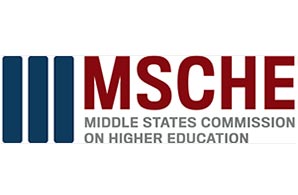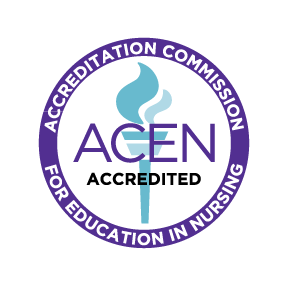
Master of Science in Nursing Informatics
Master of Science in Nursing Informatics

Talk with us.
Learn more about how our program works
and what you need to get started
Harness Information Science to Improve Patient Care with a Master of Science in Nursing Informatics
The fully online Master of Science in Nursing Informatics program is designed for the registered nurse with an interest in how nursing science, data science, and information technology can work together to effectively improve patient outcomes.
Online courses, practical experiences, and a robust curriculum prepare you to know how to use data to respond to health care problems, improve care and organizational operations, and make information-based decisions in a variety of health organizations.
The dynamic and challenging program provides a flexible path for working registered nurses to earn their master’s degree and prepare to build a career in the growing field of nursing informatics. Learn to manage complex health information in hospitals, nursing homes, public health firms, research laboratories, and insurance agencies.
Are you a registered nurse who’s interested in a master’s but don’t have your bachelor’s in nursing yet? Learn more about our dual-degree RN to MS in Nursing Informatics program.
Dedicated Support
Here for you from start to finish
200,000+ Alumni
Join our global network
Start March 2
Courses start every 8 weeks
PROGRAM DETAILS
Online MS in Nursing Informatics
- Major Core36 Credits
Master of Science in Nursing Informatics
Explore Common Careers

Danielle Beasley, PhD, RN, RNC-OB, CNE
Department Chair, BS and MS Programs in Nursing
School of Nursing, College of Nursing and Health Sciences
Institutional Accreditation
Excelsior University is an accredited institution and a member of the Middle States Commission on Higher Education (MSCHE or the Commission) www.msche.org. Excelsior University’s accreditation status is accreditation reaffirmed. The Commission’s most recent action on the institution’s accreditation status on June 23, 2022 was to reaffirm accreditation. MSCHE is recognized by the U.S. Secretary of Education to conduct accreditation and pre-accreditation (candidate status) activities for institutions of higher education including distance, correspondence education, and direct assessment programs offered at those institutions. The Commission’s geographic area of accrediting activities is throughout the United States.
Excelsior’s academic programs are registered by the New York State Education Department and/or have Florida-based licensing with the Commission for Independent Education, Florida Department of Education (License No. 12928).
ACEN Accreditation
The RN to Bachelor of Science in Nursing, Master of Science in Nursing Leadership and Administration of Health Care Systems, Master of Science in Nursing Education, Master of Science in Nursing Informatics, RN to Master of Science in Nursing Leadership and Administration of Health Care Systems, RN to Master of Science in Nursing Education, and RN to Master of Science in Nursing Informatics programs at Excelsior University located in Albany, NY, are accredited by the:
Accreditation Commission for Education in Nursing (ACEN)
3390 Peachtree Road NE, Suite 1400
Atlanta, GA 30326
404-975-5000
The most recent accreditation decision made by the ACEN Board of Commissioners for the RN to bachelor’s program, master’s nursing program, and RN to master’s nursing programs is continuing accreditation. View the public information disclosed by the ACEN regarding these programs at https://www.acenursing.org/search-programs.
FAQ
Yes, an MS in Nursing Informatics can lead to careers that blend both nursing and information technology. Although it might not be a direct bridge into all IT fields, this degree provides a strong foundation for roles that require both clinical and technical expertise, such as nursing informatics specialist, telehealth project manager, or health care data analyst.
Excelsior University’s MS in Nursing Informatics program is 36 credits. Your time to completion depends on the amount of credit you transfer into the program and the number of courses you take per term.
Roles for MS in Nursing Informatics graduates include clinical informatics specialist, informatics nurse, health IT project manager, and clinical informatics manager. Other common careers include informatics analyst, systems analyst, or leadership positions like chief medical information officer or chief nursing informatics officer.
Health care organizations are increasingly reliant on technology and data, which has created a strong need for nursing informatics professionals skilled in both nursing and information technology. This demand is projected to grow significantly in the coming years as technology advances.
Excelsior University’s MS in Nursing Informatics program is designed for working registered nurses and assumes a higher level of nursing experience. IT experience is helpful but not required. To apply to this program, you must hold an active and unencumbered U.S. Registered Nurse (RN) license or equivalent and provide an official transcript showing the completion of a bachelor’s degree in nursing from a regionally accredited college or university, or the foreign equivalent, at an institution that was approved by ACEN, CCNE, or CNEA at the time of your attendance. Your official transcript must also show your completion of a course in statistics at the undergraduate level.

